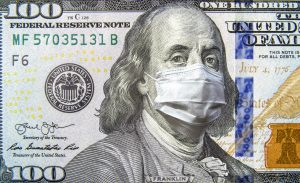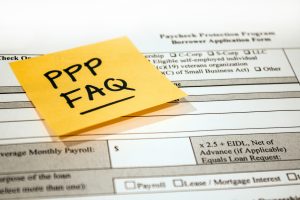Uniform Commercial Code (“UCC”) Article 2 addresses sales of goods. “Goods” under the UCC “means all things . . . which are movable at the time of identification to the contract for sale” with a few exceptions. § 25-2-105 (all of the sections referenced here are to the North Carolina General Statutes chapter 25). Virtually anything you buy online, from a vendor, or in a store is governed by the UCC.
Most UCC provisions were drafted with the proviso that if your contract addresses an issue explicitly, the contract language will govern, rather than the statute. The statute addresses the rights of the buyer and seller for matters that are not explicitly addressed in any particular contract. Importantly, the statute has a number of exceptions and any legal analysis of your rights under any particular contract would require a review of the actual contract, the circumstances under which the contract was signed and performed, as well as the course of dealing between the parties. The following summary is not intended to provide legal advice, but to present an overview of potential options when faced with obstacles caused by the pandemic.
Given the disruptions in supply chains and, to some extent transportation, North Carolina General Statute § 25-2-615 is particularly relevant. What if a seller is unable to deliver the goods purchased or is delayed in delivering? The statute provides in part that a seller who is unable to deliver its goods is not in breach of the contract “if performance as agreed has been made impracticable by the occurrence of a contingency the nonoccurrence of which was a basic assumption on which the contract was made or by compliance in good faith with any applicable foreign or domestic governmental regulation or order whether or not it later proves to be invalid.” This provision applies to both nondelivery and delays in delivery. To have its performance excused, the seller must timely inform the buyer of the delay in delivery or nondelivery and the seller must allocate whatever goods the seller can provide among its customers.
The current COVID-19 pandemic appears to be “a contingency the nonoccurrence of which was a basic assumption on which the contract was made.” While this is clearly true for contracts made prior to December 2019, when virtually no one knew that COVID-19 existed, the issue becomes murky for contracts entered into in 2020. Indeed, the timing of the contract might bring into question whether the seller and buyer actually assumed that the transaction would be unaffected by the pandemic or the government orders imposed in March 2020.
Section 25-2-615 specifically provides that it applies only if the seller has not “assumed a greater obligation.” If the contract requires performance despite the pandemic or the governmental regulations related to it, the seller’s performance would not be excused and the buyer could demand full performance.
If the statute does apply, once the buyer receives a notification of delay or nondelivery, the buyer has the right to terminate the remaining portion of the contract or modify the contract to accept the buyer’s available quota in substitution. N.C. Gen. Stat. § 25-2-616. The buyer’s decision must be communicated to the seller in writing. If the buyer does nothing within a reasonable time not exceeding 30 days, the remaining portions of the contract are terminated. Interestingly, although § 25-2-615 can be altered by a contractual provision imposing a greater burden on the seller, § 25-2-616 cannot be negated by agreement.
What if the buyer is in financial trouble? Can the seller withhold performance? The answer is maybe. If the seller “discovers the buyer to be insolvent” the seller can require cash payments for all deliveries, including goods previously delivered, and can stop further deliveries. § 25-2-702(1). Additionally, if a seller discovers that a buyer has received goods on credit while the buyer was insolvent, the seller may reclaim the goods within 10 days of the buyer receiving them. If the buyer has made a written misrepresentation of solvency to the seller within the preceding 3 months, the 10-day limit does not apply, meaning a seller could potentially reach back to goods delivered longer than 10 days before.
The seller’s right to reclaim property is an exclusive remedy. If the seller retakes goods sold, the seller has given up its right to assert a claim for damages.
The protections of § 25-2-702 are available to a seller at any time, not just during a pandemic. Similarly, § 25-2-609 provides that in any contract “[w]hen reasonable grounds for insecurity arise with respect to the performance of either party the other may in writing demand adequate assurance of due performance. . . .”
The party making the request may suspend its performance if the other party has not yet performed until the adequate assurance is made. The circumstances under which a party would be permitted to suspend its performance are very fact specific. There must be a justifiable reason for the initial insecurity, and the statute does not define what constitutes an “adequate assurance” other than to note that in transactions between merchants the matter shall be “determined according to commercial standards.” If the party to whom a request for adequate assurance does not respond within a reasonable time “not to exceed 30 days” the party who made the request may repudiate the contract.




